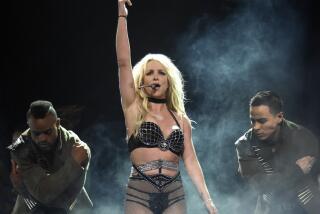Whats in a book of names?
In “The African Book of Names,” a new work compiled by Askhari Hodari, there are more than 5,000 names deriving from 37 nations and more than 70 ethno-linguistic groups. One thing that sets it apart from other name books is that it makes clear that it’s not just for babies; it notes that adults have taken African names later in life. “New names can represent new stages of development,” Hodari writes. “ Sojourner Truth, Muhammad Ali, Kareem Abdul-Jabbar and El Hajj Malik El Shabazz ( Malcolm X) all took on new names as adults.”
Another thing that sets this book apart is its organization. Instead of listing names alphabetically or by language, it is organized by theme and idea. Which kind of makes sense -- if you’re thinking you want a name that means “joy” or “speed” or “beauty,” this gives you the tools to find it. But the book could use a reverse directory; it’s not easy to find a name you’ve heard or read if you don’t already know the meaning.
Page through and you will find: that Agunna means “strong boy” in Igbo (Nigeria), Ifetayo (for girls) means “love brings happiness” in West Africa, Ojike means “full of energy” in Nigeria, and Zahabu (for girls) means “the golden one” in Galla (Ethiopia).
So what if you happened to find yourself with octuplets? You might consider Ungi, which means “plentiful, to have a multitude” in Swahili; Akwete and Akwokwo, the elder and younger of female twins, respectively, in Ga (Ghana); or Anele (for boys), which means “we are satisfied, enough children” in Azania.
For more books coverage, go to the Jacket Copy blog at latimes.com/jacketcopy
More to Read
Sign up for our Book Club newsletter
Get the latest news, events and more from the Los Angeles Times Book Club, and help us get L.A. reading and talking.
You may occasionally receive promotional content from the Los Angeles Times.







